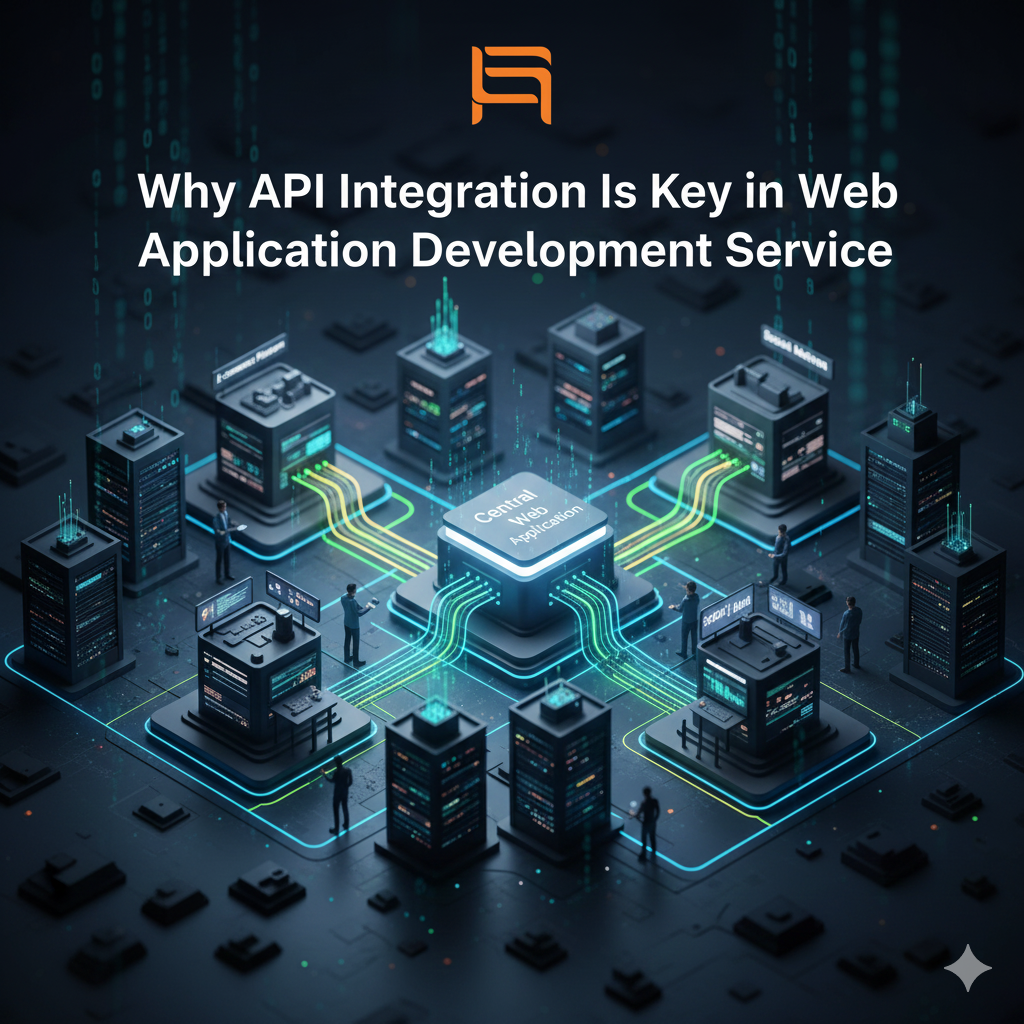Why API Integration Is Key in Web Application Development Service.

In 2025, a web application that stands alone is a web application that fails.
Gone are the days when a website was just a digital brochure. Today, modern businesses demand "ecosystems" digital platforms that talk to payment gateways, pull data from CRMs, and sync instantly with advertising platforms.
This connectivity is powered by API (Application Programming Interface) integration.
For business owners and CMOs, understanding this isn't just "tech trivia"; it is the difference between a stagnant tool and a scalable revenue engine. Whether you are hiring a web application development service or auditing your current stack, API integration is the forensic indicator of a future-proof build.
This guide explores why APIs are the invisible nervous system of your business and how they bridge the gap between development and growth strategies like ppc advertising services.
1. Breaking Down Data Silos
The primary function of API integration is to destroy "data silos." Without APIs, your web application holds data (user orders, sign-ups) that is invisible to the rest of your business tools.
-
The Old Way: A customer fills out a lead form. An employee manually exports a CSV file and uploads it to a CRM.
-
The API Way: The customer hits "Submit." The web app’s API instantly pushes that data to Salesforce, triggers a "Welcome" email via Mailchimp, and alerts the sales team on Slack.
Why This Matters: Real-time data means zero lag in customer service. A web application development service that prioritizes API-first architecture ensures your business operates as a single, synchronized organism.
2. Empowering Smarter Marketing (The PPC Connection)
One of the most critical yet overlooked benefits of API integration is its impact on paid media.
Top-tier ppc advertising companies no longer rely on simple "cookies" to track success. Browsers are blocking cookies, and privacy laws (like GDPR) are tightening. The solution? Server-Side API Tracking.
The "Conversion API" Revolution
Instead of relying on a user's browser to tell Facebook or Google that a purchase happened, your web application uses an API to send that data directly from the server.
-
Accuracy: APIs bypass ad-blockers, ensuring 100% of your data is captured.
-
ROI: When your ppc advertising services have better data, algorithms can bid more intelligently, lowering your Cost Per Acquisition (CPA).
If your web app cannot integrate with the Meta Conversions API (CAPI) or Google Ads API, you are flying blind in your marketing spend.
3. Accelerating Development and reducing Costs
From a forensic cost perspective, APIs are a budget-saver.
Building complex features from scratch is expensive and time-consuming. Why build a new mapping system when you can integrate the Google Maps API? Why code a new bank-level security payment processor when you can integrate the Stripe API?
A strategic web application development service will use APIs to:
-
Reduce Time-to-Market: Launch your MVP (Minimum Viable Product) months faster.
-
Lower Maintenance Costs: Let third-party providers (like Twilio for SMS or AWS for storage) handle the heavy lifting of infrastructure maintenance.
4. Scalability: Ready for the Future
What happens when your user base grows from 100 to 100,000?
Monolithic applications (where everything is glued together in one big block of code) tend to crash under pressure. Modern apps use Microservices small, independent services connected by APIs.
-
If your "Search" feature gets overloaded, you can scale just the Search API without rewriting the whole app.
-
This modularity allows you to swap out vendors easily. Unhappy with your email provider? Unplug their API and plug in a new one.
5. Enhancing User Experience (UX)
APIs are the magic behind the smooth experiences users expect.
-
Social Login: "Sign in with Google" uses OAuth APIs to remove friction, increasing sign-up conversion rates.
-
Real-Time Updates: Uber showing your driver’s car moving on a map is a continuous stream of API calls.
If your web app feels clunky or requires page reloads to show new data, it is likely suffering from a lack of proper API integration.
Conclusion: The Integration Imperative
API integration is no longer an "add-on"; it is the foundation.
Whether you are looking to streamline operations, secure your data, or empower your ppc advertising services with accurate tracking, the quality of your API architecture dictates your success.
At Brighton Ashbury, we don't just write code; we build connected ecosystems. As a forensic-level web application development service, we ensure your digital infrastructure is built to speak the language of modern business fluently and securely.
Ready to build a web application that actually drives revenue? Contact us today for a full audit of your digital infrastructure.
- Art
- Causes
- Crafts
- Dance
- Drinks
- Film
- Fitness
- Food
- Jogos
- Gardening
- Health
- Início
- Literature
- Music
- Networking
- Outro
- Party
- Religion
- Shopping
- Sports
- Theater
- Wellness




